Does Your Business Really Need an Enterprise Artificial Intelligence
Any technology, taking progress several steps forward, always raises concerns that border on excitement and disappointment at the same time. This trend has not spared artificial intelligence. Even though the technology is not new (the first solutions appeared in the 1960s), the real breakthrough and active use of AI in business appeared only in the 21st century. Computing power, larger datasets, and the rise of open-source software allowed developers to create advanced algorithms.
Nowadays, almost all businesses want AI, regardless of size and tasks. So let’s see if artificial intelligence is really so beneficial. For whom it’s too early to implement it, and who needs it as of yesterday.
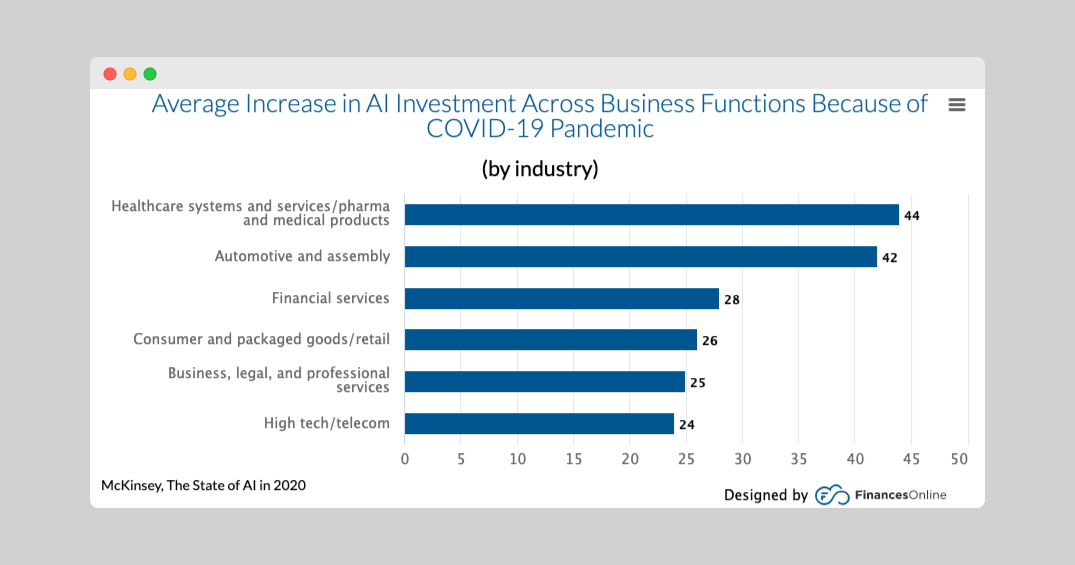
AI Application for Business
Artificial intelligence is an imitation of the mental properties of the human brain by computer systems. The algorithm learns itself, becoming more and more perfect. To reach the level of a full-fledged thought process, still enough time must pass (although some experts argue that a machine and a person will equal in intellectual abilities in the next decade).
Project Management For Software Development: The App Solutions Tips
Nevertheless, AI is designed to solve relatively voluminous and straightforward tasks from document flow to primitive communication as support. These AI capabilities alone save businesses around the world thousands and thousands of labor hours. Already, 72% of companies using AI in their work say that it makes doing business easier.
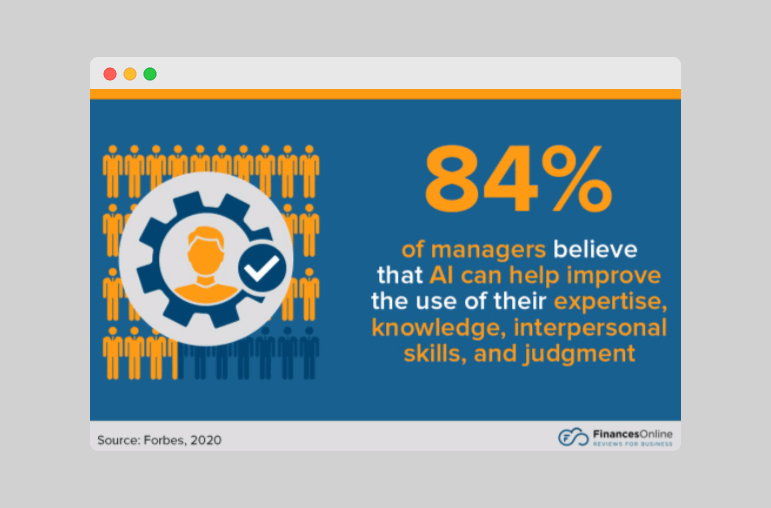
In this regard, there are fears that many people will be left without work. Indeed, according to forecasts, secretaries, accountants, administrators, auditors, repairers in factories, and even general and operational managers can lose their jobs. In contrast, new jobs will receive big data and data analysts specialists, AI and machine learning engineers, software and app developers…
The World Economic Forum says 85 million jobs will be eliminated by 2025, while 97 million new jobs will appear. So the reformatting of the labor market towards technical specialties is inevitable one way or another.
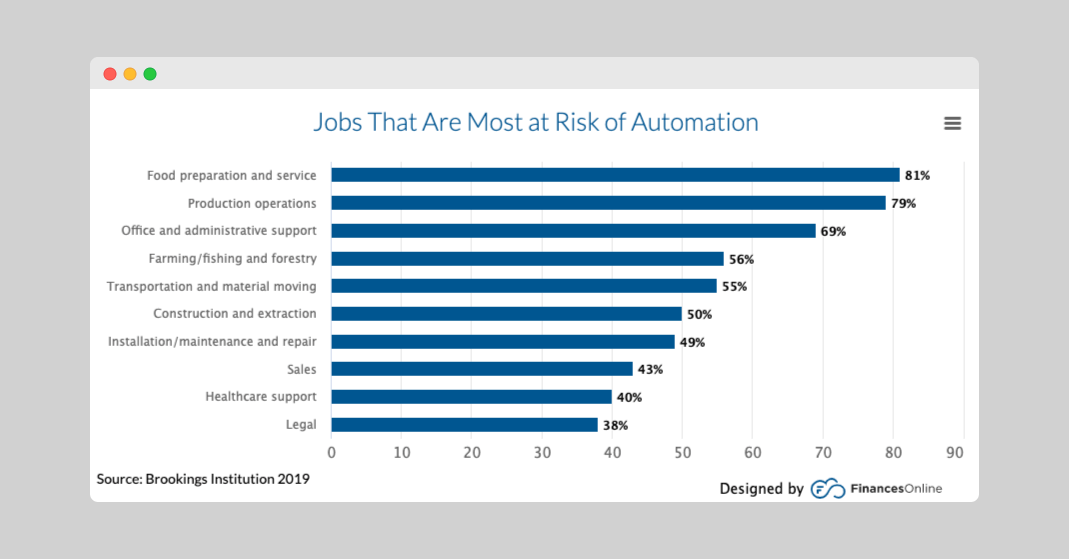
According to Fortune Business Insights, the global AI market was estimated at $27.23 billion in 2019 and is projected to reach $266.92 billion by 2027, with a 33.2% CAGR over the forecast period.
At the same time, IDG claims that in 2021 the cost of AI and similar systems reaches $57.6 billion. For instance, Netflix spends $1 million annually to develop its recommendation engine. According to company representatives: “The typical Netflix contributor loses interest after about 60-90 seconds of selection, having watched 10 to 20 titles (possibly 3 in detail) on one or two screens.” It’s cheaper to spend money on a good advisor than to lose views.
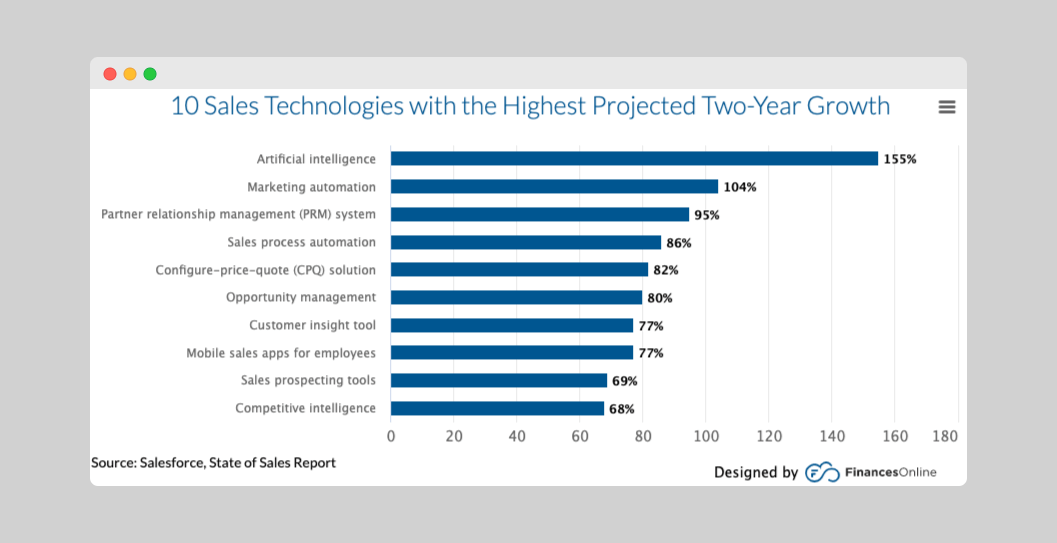
The PwC’s forecast claims that in 2030 AI can contribute up to 15.7 trillion dollars to the global economy. For comparison, the combined output of China and India in the world economy is currently less. However, the PwC predicts that an attractive, innovative business that has yet to emerge could become a market leader based on AI technology in ten years.
AI is already used by 38% of healthcare providers as computer diagnostics and 52% of telecommunications companies as chatbots. It is not surprising. Consumers are increasingly demanding round-the-clock support and are ready to receive more primitive but instant answers to their questions; that is, they are ready to sacrifice quality to save their time.
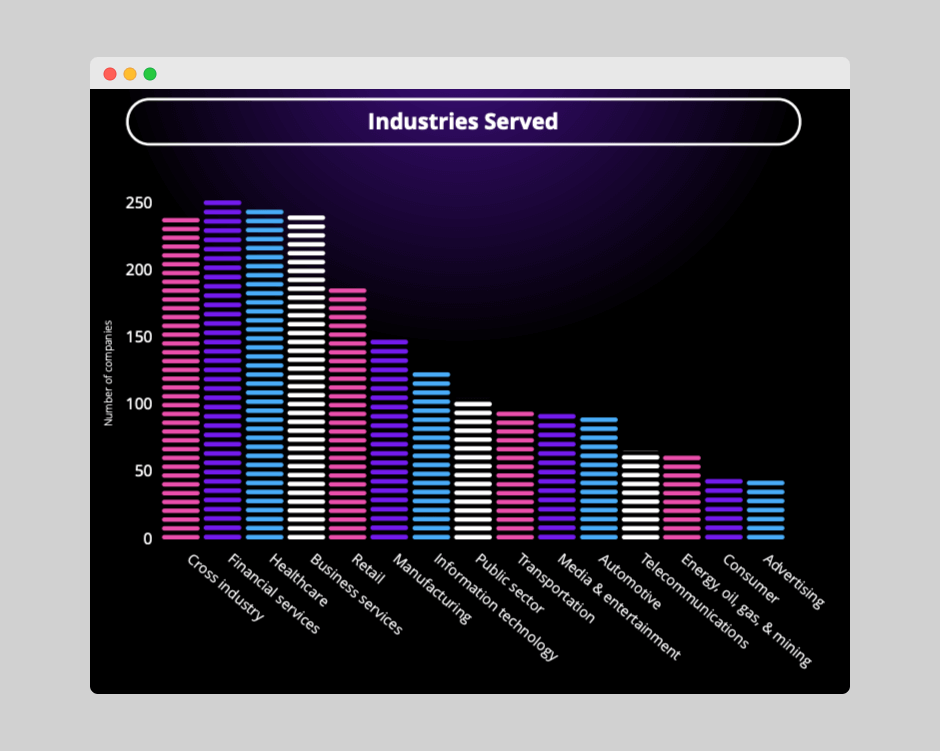
Benefits of AI for Business
Regardless of what field you work in – from law to marketing, from medicine to restaurant business – AI will find an appliance everywhere. Several undeniable benefits of AI will be effective for any business.
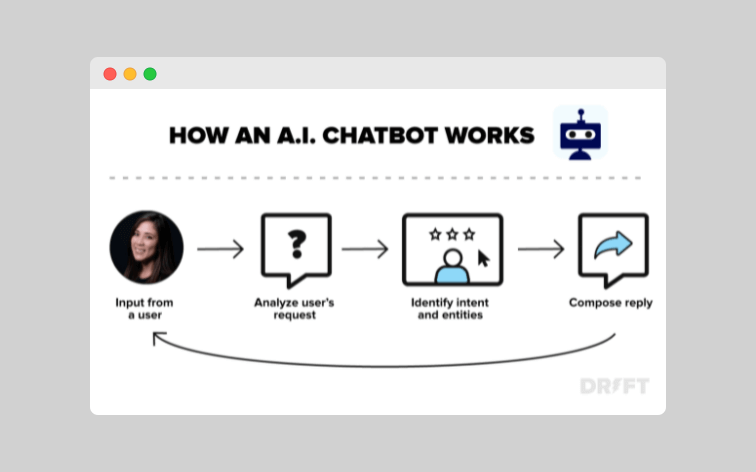
- Improving customer engagement. Chatbot has already become the most popular way to communicate with consumers. Enterprise artificial intelligence contributes to increased customer satisfaction, leading to lower costs, in particular, on the payroll. Moreover, chatbots have become a real salvation for small businesses, which do not have the opportunity to hire a large staff for support.
- Increased brand loyalty. Personalization is the key to the consumer’s heart, as evidenced by the investment of Netflix mentioned above in personalized search. With an individual approach, you will inevitably win the preferences of your customers, making them permanent. But to solve this problem, you need to collect a considerable array of analytics of behavioral factors. AI can solve it. Various studies say that this approach increases conversions from 14 to 30%.
- Data security and fraud prevention. Primarily relevant for financial enterprises. AI not only finds weaknesses in security systems but can also determine the characteristic behavior during transactions.
- Improving the accuracy of forecasts. Artificial intelligence allows you to avoid the human factor when making decisions, reducing the risk of mistakes. For example, lead scoring analyzes and predicts which leads will be the most promising. Other algorithms help control financial flows and trade. Also, you can be sure of compliance with all requirements, standards, and regulations that your company sets.
- Recruiting optimization. By automating the analysis of candidates’ CVs, human bias in preliminary checks is eliminated. In due course, PepsiCo needed to hire 250 people out of 1,500 applicants in two months. AI was drawn into the first round of interviews. Thus, all candidates were interviewed in nine hours. It would take human personnel nine weeks, by contrast. During this time, “live” recruiters could deal with more complex creative tasks. The latter concerns other employees of your company – let them develop while AI does the whole routine for them.
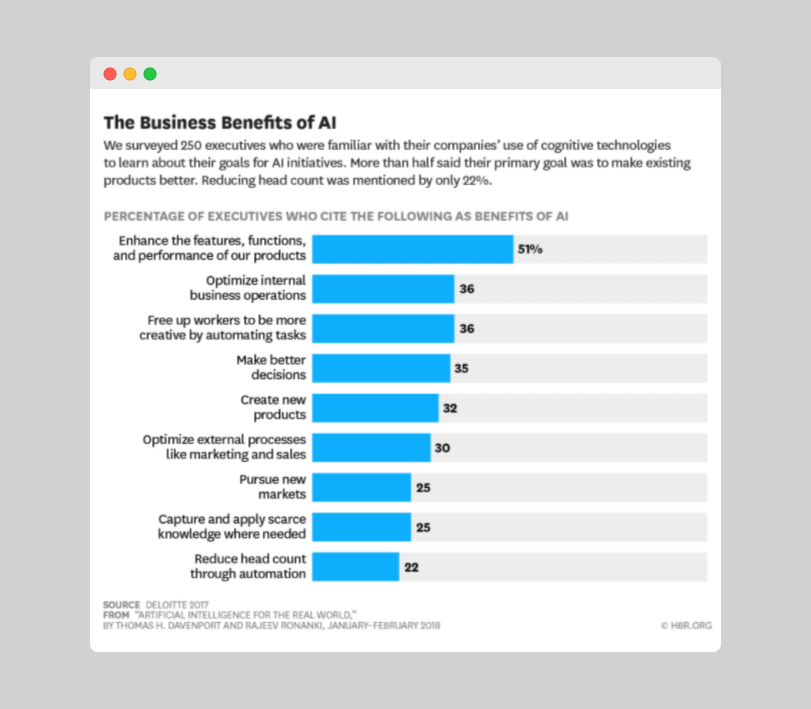
How to Get the most out of AI Benefits
There will be no benefits at all if enterprise AI software is not implemented efficiently. To prevent this in business processes, it is better to follow a few tips that will allow you to comprehensively approach the implementation of artificial intelligence.
- New technologies need new people. Without hiring the appropriate specialists, only with the forces of the old state, you most likely will not succeed. Probably, you will need a whole department, but do not be afraid of such expenses – they pay off significantly. Of course, you can use the already developed AI technologies that other companies offer. Still, sooner or later, almost any business comes to the point when it becomes unprofitable and even unsafe to use third-party services.
- Don’t be afraid to expand. The introduction of new technologies should bring benefits and profits to the business. However, to reduce costs, in the end, they will need to be increased first. And it concerns not only the increase in staff but also the expansion of new markets because with AI, it is possible to work with large amounts of information. Accordingly, new expenses cannot be avoided; however, the competent use of AI will very soon turn your expenses into income.
- Don’t be afraid to change your motion vectors. Artificial intelligence often helps business owners understand that changing the business model will help them move on with greater efficiency. There is no need to be afraid to change anything because it is to change for the better that you started working with AI, right?
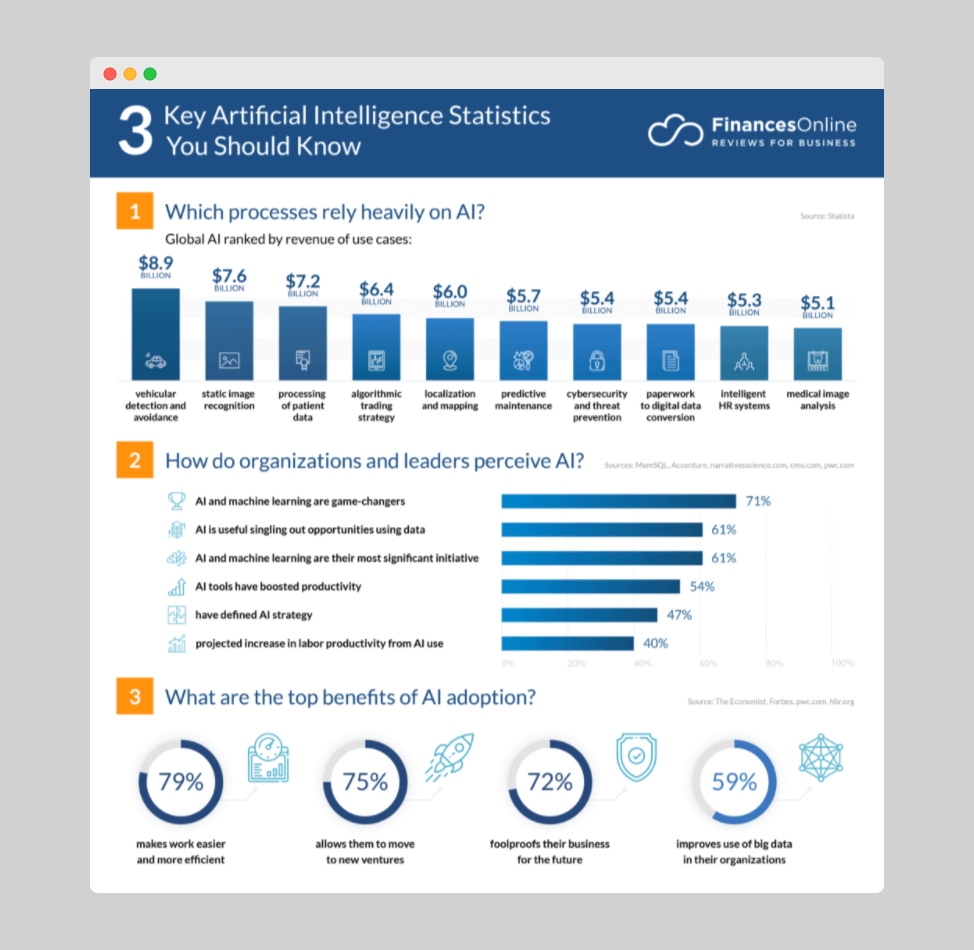
Signs Your Enterprise Needs AI Solutions
Artificial intelligence is complex, and many businesses still don’t know how to implement and benefit from this technology. Companies around the world are at different stages of AI adoption:
- Awareness (there is the only talk of introducing AI when planning business processes and strategies)
- Activation (technology is not yet widely used, only as a test for some pilot projects)
- Operation (at least one project from start to finish uses AI in its work, a separate budget and team is allocated for this)
- Consistency (all new projects, products, and services are created using AI, all technical employees of the company are aware of the nuances of work, actively apply technology in their daily routine)
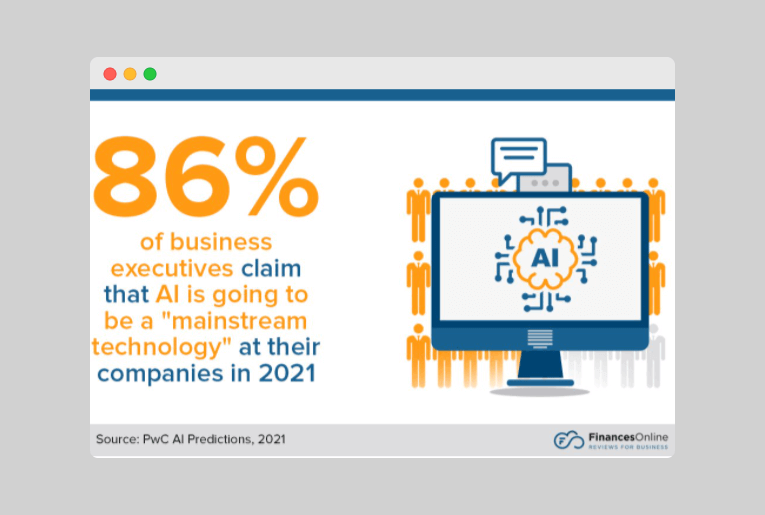
However, not all companies decide to implement AI, even if they see an obvious benefit. To understand if you really need AI, think about the following things.
Data Mining Vs. Predictive Analytics: Know The Difference
Well-established Data Collection
Determine how much information your employees will have to work with. You won’t be able to endlessly hire new specialists to cover all your database needs. If the costs of implementing AI outweigh the other concerns, then prepare your data to ensure that AI adoption runs as smoothly as possible. This requires:
- Keep data up to date. The algorithm will not be able to make accurate predictions and provide relevant analytics if your data, for example, on customer behavioral factors, is not updated. To put it bluntly, you don’t need a smartphone if you still use pigeon posts. Spending on AI should pay off. It can process huge amounts of information and produce specific results, but who will need them if the initial data is outdated.
- Check your details for errors. A machine can process a large amount of data faster than you, but at the same time, it can get confused about some elementary thing that a first-grader would easily understand. Where the human brain sees a typo in the same word, the machine sees two different words. Of course, the AI has reached the level where it realizes that you made a mistake (for example, when the search engine suggests that “you must have meant” something completely different). However, the search engine has enough experience to conclude the error, but will your algorithm have enough experience from scratch?
- Use a consistent format for storing data. For AI to collect all the information stored in your company and process it correctly, you should contain it in one setup.
Particular Business Problem to Solve
So, you have prepared the technical basis for the AI implementation, and now you need to decide what algorithm can help you in the first place? Perhaps, to solve critical problems, or are you already doing well, but you want it to be even better?
- Increase the price of the existing product. As we mentioned earlier, the attractiveness of a product or service increases not only due to the quality of the product in front of competitors but also due to a personalized approach to the client. Are you selling cosmetics? Let your AI match the eyeshadow palette, mascara, or 50 shades of lipstick from the same producer to the one chosen by the client.
- Analysis of the current status of the business. The algorithm can help you find weaknesses that you didn’t even know about: logistics, marketing, sales, manufacturing – all these can be bottlenecks. Plan resources and forecast demand correctly with AI technology.
- Business process automation. When you have identified and eliminated the problems and perhaps even radically changed the business model, it’s time to think about automating processes and, accordingly, optimizing the staff and retraining for more intelligent work.
Culture of Innovations
Before implementing AI, make sure that your employees share a philosophy of innovation and progress with you, that they have no fear of not coping and fear for their workplace. New technologies can be quickly, organically, and painlessly introduced only if your company is constantly engaged in them.
- Corporate strategy. Don’t innovate for the sake of innovation. You will never make a profit this way. You should not put all products under the auspices of AI at once. Try with small, not very resourceful projects. Then there is no risk that your company will collapse like a house of cards in case of failure.
- Metrics. Be sure to define the criteria by which you will measure the success of the implementation of AI to understand when the payback comes.
- The right to make mistakes. Yes, this also needs to be incorporated into the business strategy. One of the indisputable advantages of AI is considered to be that it excludes the human factor. However, the machine can malfunction; this is a well-known fact. Do not assume that this risk negates all the other advantages of a smart algorithm. Just take into account that you need to spend money not only on the development but also on the support of the algorithm at first.
Outcomes
For all the attractiveness of AI technology, consider whether you really need it. Do your capacities give reason to implement it? If the amount of information is large and the corporate business strategy and tasks are flexible enough, there is no point in delaying.
The APP Solutions is a web and mobile app development team aware of AI algorithms development and implementation for Enterprises. Suppose you are already ready to introduce AI technologies into your business but cannot decide on a development team. In that case, we are ready for fruitful cooperation and are waiting for you!
